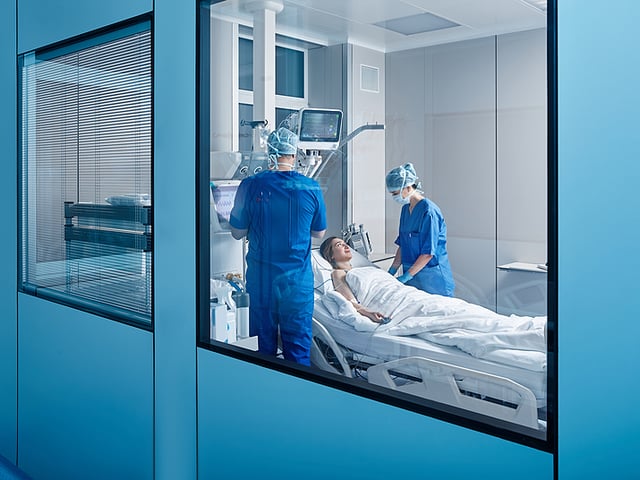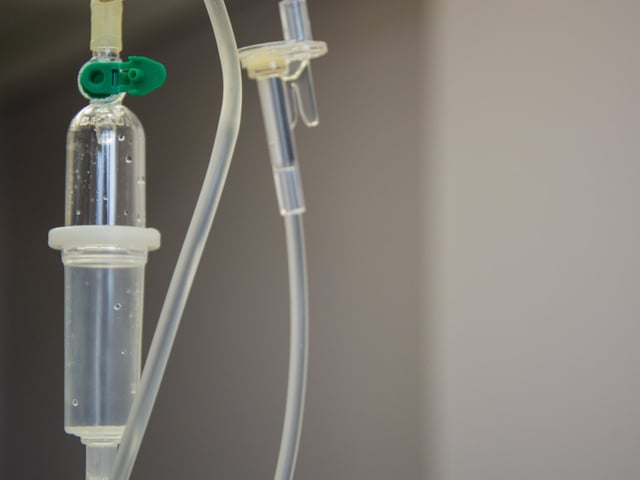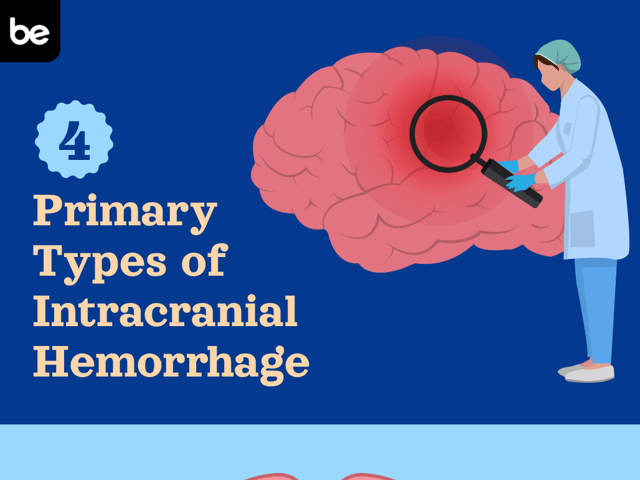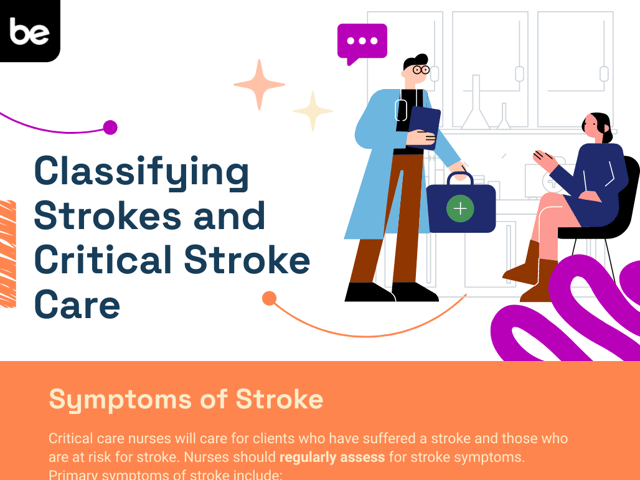
Is CCRN Certification Worth It?
The CCRN (Critical Care Registered Nurse) Certification stands as a testament to a registered nurse’s superior skillset and knowledge in managing critically ill or injured patients. As a globally recognized qualification, the CCRN certification is designed for those working in areas such as Intensive Care Units (ICUs), Cardiac Care Units (CCUs), Emergency Rooms (ERs), and Trauma Centers where patients require high levels of care and constant monitoring.
The American Association of Critical-Care Nurses (AACN) administers the CCRN certification, ensuring that certified individuals meet the stringent clinical standards and stringent professional benchmarks set by the organization. The AACN is a highly respected body within the healthcare community, with a track record of upholding and promoting excellence in nursing practice.
To achieve the CCRN certification, nurses must demonstrate their mastery of complex concepts, skills, and knowledge areas related to the care of acutely or critically ill patients. The certification exam covers a broad range of topics and systems, including cardiovascular, respiratory, endocrine, neurology, and hematology, amongst others. Passing the exam is an indication of the nurse’s adeptness at dealing with the various challenges that may arise in the critical care setting.
Earning the CCRN certification requires commitment and dedication, as it involves an extensive preparation phase followed by a rigorous examination. The decision to pursue this advanced certification should be carefully considered. It requires a significant investment of time, energy, and resources, but it also has the potential to elevate your nursing career to the next level. In this blog, we’ll delve deeper into the pros and cons of earning a CCRN certification, weighing the potential benefits against the challenges. We’ll aim to provide a balanced view, helping you make an informed decision about whether this esteemed certification is the right path for your career advancement in critical care nursing.
What’s on the CCRN?
The CCRN exam is a comprehensive and challenging assessment designed to validate the knowledge and skills of critical care nurses. It’s intended to reflect the tasks performed by nurses in critical care settings and focuses on adult, pediatric, or neonatal patient populations, depending on the specific exam variant taken.
The exam consists of 150 multiple-choice questions, 125 of which are scored and the remaining 25 serve as pretest questions for future exams. Test-takers have three hours to complete the exam. The content of the exam is divided into several categories, each addressing a critical aspect of patient care.
Major Content Areas
The CCRN exam comprises several categories that encompass the breadth and depth of knowledge and skills critical care nurses must possess. Each category contributes a certain percentage towards the overall exam. Here’s a breakdown of the key areas and their respective weight:
Endocrine, Hematology, Gastrointestinal, Renal, and Integumentary (20%)
This section tests knowledge and understanding of a variety of systems and conditions, including endocrine disorders such as diabetes, hematological conditions like coagulopathy, gastrointestinal issues including liver failure, renal conditions such as renal failure, and integumentary disorders like burns.
Respiratory (18%)
This portion assesses your expertise in managing and intervening in pulmonary conditions and complications. Topics may include conditions like Acute Respiratory Distress Syndrome (ARDS), asthma, pulmonary embolism, and various aspects of ventilator management.
Musculoskeletal, Neurological, and Psychosocial (15%)
This section encompasses musculoskeletal and neurological conditions, as well as psychosocial aspects of patient care. The focus is on disorders like neurologic trauma, spinal cord injuries, and musculoskeletal conditions, along with understanding a patient’s psychosocial needs and responses in a critical care setting.
Cardiovascular (14%)
This portion of the exam tests your knowledge of various cardiovascular conditions such as myocardial infarction, heart failure, dysrhythmia, and different shock states. You’ll need to demonstrate skills in assessing patient conditions, interpreting diagnostic data, managing and implementing appropriate interventions, and evaluating patient outcomes.
Multisystem (13%)
Questions in this section cover complex cases that involve multiple body systems, with conditions like multiple organ dysfunction syndrome (MODS) and sepsis. Your understanding of the pathophysiology of these conditions and your ability to manage these complex patients are evaluated in this part of the exam.
Professional Caring and Ethical Practice (20%)
This significant portion of the exam focuses on the professional and ethical aspects of critical care nursing. Topics may include ethical dilemmas in critical care, patient advocacy, end-of-life care, family interactions, and the role of the nurse in promoting a culture of safety. This section underscores the importance of not only medical knowledge but also interpersonal skills, empathy, ethics, and professionalism in delivering high-quality patient care.
Advantages of CCRN Certification
Demonstrates Expertise
The CCRN certification serves as a professional badge of honor, indicating your specialized knowledge and expertise in the realm of critical care nursing. Holding this certification provides tangible evidence of your extensive understanding of complex medical conditions, advanced procedures, and the ability to provide high-level care to critically ill patients. It showcases your commitment to the profession and your relentless pursuit of clinical excellence.
Moreover, achieving CCRN certification is a testament to your dedication to improving patient outcomes. By obtaining this certification, you illustrate your willingness to stay current with medical advancements, incorporate evidence-based practices into your patient care, and continually invest in your personal and professional growth.
Job Advancement Opportunities
CCRN certification often acts as a catalyst for job advancement within the field of nursing. Employers frequently prefer hiring CCRN-certified nurses for critical care roles because it guarantees that these professionals possess the advanced skills and knowledge necessary to care for critically ill or injured patients.
With this certification in hand, you distinguish yourself from non-certified counterparts and position yourself favorably for promotional opportunities. It paves the way for roles beyond bedside care such as charge nurse, nurse educator, or nurse manager positions. In these roles, you’ll have the chance to influence the broader healthcare environment, mentor other nurses, and take on leadership responsibilities.
Increased Earning Potential
One of the compelling motivations for obtaining CCRN certification is the prospect of increased earnings. While the exact amount can vary widely depending on factors such as geographical location, years of experience, the specific healthcare setting, and the policies of individual employers, numerous studies and salary surveys indicate that CCRN-certified nurses tend to earn more than their non-certified peers.
On average, CCRN-certified nurses can expect to earn an additional 5-10% compared to non-certified nurses. To give a clearer picture, consider that the average salary for a registered nurse in the United States was about $81,220 per year in 2022, according to the Bureau of Labor Statistics. A 5-10% increase on this salary could potentially mean an extra $4,061 to $8,122 annually.
It’s also important to note that certification could lead to even higher salary boosts in more senior roles. Nurses with CCRN certification are often considered for advancement opportunities, such as critical care nurse manager, clinical nurse specialist, or nurse educator roles, which come with significantly higher pay scales.
Additionally, some employers offer financial incentives to nurses who achieve CCRN certification, recognizing the commitment and expertise that it demonstrates. These incentives can include bonuses, pay increments, or tuition reimbursement for further education or professional development activities. This not only translates into more immediate monetary benefits but also fosters an environment of continuous learning and career growth.
The increased earning potential should be considered in conjunction with the other benefits of CCRN certification, such as enhanced professional recognition, job satisfaction, and career advancement opportunities. While the financial investment for obtaining the certification is significant, the potential return on this investment over the course of your career can make it a worthwhile endeavor.
Professional Recognition and Satisfaction
Earning the CCRN certification is an accomplishment that brings significant professional recognition. It’s a visible sign of your advanced skills and expertise, leading to enhanced respect from peers, management, and other healthcare professionals.
Beyond recognition, the journey towards achieving and maintaining the CCRN certification can bring about a deep sense of professional satisfaction. It instills a high level of confidence in your clinical practice, knowing you have the competence to deliver the best possible care to your patients. It reinforces your identity as a healthcare professional and reaffirms your commitment to your chosen career path.
Potential Drawbacks of CCRN Certification
While the CCRN certification is highly esteemed and brings numerous professional advantages, it’s essential to consider the potential challenges involved in acquiring this credential.
Time and Financial Investment
Acquiring the CCRN certification requires a substantial commitment of both time and money. The process involves extensive studying, which entails purchasing and thoroughly reviewing numerous study materials. In addition to this, there’s the cost of the certification exam itself, which is currently $250 for AACN members and $365 for non-members.
Furthermore, maintaining the certification also demands a certain level of commitment. The CCRN certification isn’t a one-time accomplishment. To keep this credential, you’re required to participate in continuous learning or recertification processes, which may include accruing professional development points, completing specific coursework, or even retaking the exam. This continuous commitment can put a strain on your time and finances over the long term.
Stress and Pressure
Another consideration is the stress and pressure associated with the process of obtaining the CCRN certification. Studying for the certification exam, given its breadth and depth of content, can be quite demanding. This rigorous preparation phase, coupled with the pressure to succeed, can lead to stress and anxiety.
The stress might be further compounded by the already high-pressure environment that comes with being a critical care nurse. Balancing the demands of your job with the rigors of preparing for the CCRN certification exam can be a daunting challenge.
In the light of these potential drawbacks, it’s critical to approach the CCRN certification journey with a clear understanding of what it entails. Being mentally prepared can help to manage these challenges more effectively. It’s essential to carefully evaluate your current situation, future goals, and capacity to commit to the process before making your decision.
Is the CCRN Certification Right for Me?
While there are some potential drawbacks, the advantages of achieving a CCRN certification are numerous and far-reaching, both in terms of professional growth and personal satisfaction. The commitment to your profession, improved job opportunities, increased salary, and professional recognition make the CCRN certification a worthy pursuit for those who are willing to dedicate the necessary time and effort.
To succeed in this journey, make good use of available resources such as practice tests, study guides, and flashcards to prepare for the CCRN certification exam. These tools can be invaluable in helping you understand the material, retain the information, and ultimately pass the exam.
Remember, your dedication to becoming a CCRN-certified nurse is an investment in your future and the future of the patients who will benefit from your advanced knowledge and skills. Best of luck as you consider taking this important next step in your role as nurse!
Keep Reading

CCRN Blog
Is the CCRN Exam Hard?
In the US, over 700,000 people work in critical care units (CCUs). With…

CCRN Blog
Traumatic Brain Injury and Intracranial Hemorrhage
Traumatic brain injury and intracranial hemorrhage are two common diagn…

CCRN Blog
Classifying Strokes and Critical Stroke Care
Stroke is one of the leading causes of death in the United States. Many…